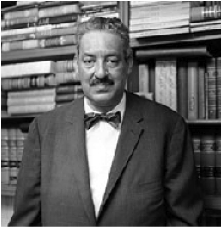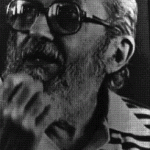Toward a Modality of Jurisprudence
 The beginning of this month marked the 45th anniversary of Thurgood Marshall’s term as Associate Justice in the United States Supreme Court. Known for his championing of individual rights while on the bench and for, previously, successfully arguing against school segregation for the NAACP in Brown v. Board of Education of Topeka, 347 U.S. 483 (1954), Marshall was a trailblazer who spoke up for those who did not have a voice. His status as the first African American Supreme Court Justice represents the forging of a path for which there was no antecedent. Pushing off to smite the sounding furrows, into the tumult of a civilization brimming with intolerance is not unlike casting headlong into a polluted river.
The beginning of this month marked the 45th anniversary of Thurgood Marshall’s term as Associate Justice in the United States Supreme Court. Known for his championing of individual rights while on the bench and for, previously, successfully arguing against school segregation for the NAACP in Brown v. Board of Education of Topeka, 347 U.S. 483 (1954), Marshall was a trailblazer who spoke up for those who did not have a voice. His status as the first African American Supreme Court Justice represents the forging of a path for which there was no antecedent. Pushing off to smite the sounding furrows, into the tumult of a civilization brimming with intolerance is not unlike casting headlong into a polluted river.
In my posts this month I have tried to showcase guideposts in approaching jurisprudence. I submit that the perpetuation of injustice represents a failure of the imagination, the inability to conceive of a better option, a different path, a truer argument or equitable solution. The history of the law is the story of our strivings to envision and enact a more fair and just world. Pruning our minds toward this task takes practice and attention. We benefit from the example of individuals like Justice Thurgood Marshall.

